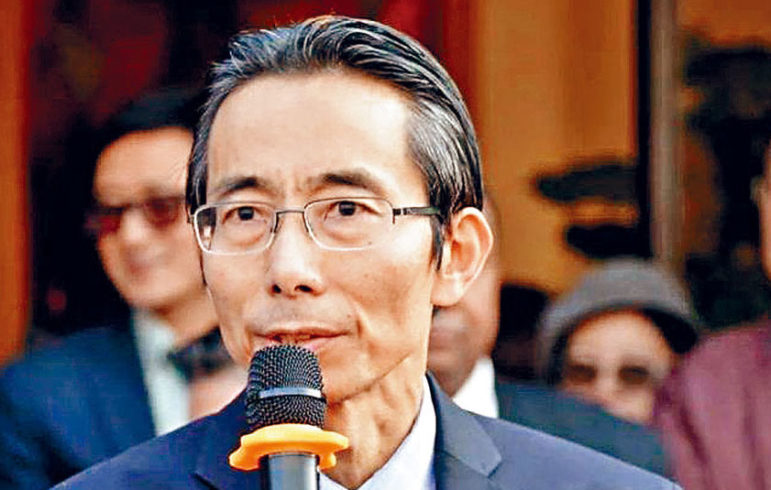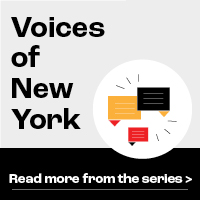It is one of several 2021 races where New York’s diverse Asian community could win Council representation to reflect their growing presence in the city.

Sing Tao Daily
Dao Yin says he considered running for the Council years ago. He feels his Queens borough president run this year laid the groundwork for a shot at the District 20 seat.This article originally appeared in Sing Tao Daily
Translated by Rong Xiaoqing from Chinese
Dao Yin, a candidate who fell short in the race for the Queens borough presidency earlier this year, has registered at the Campaign Finance Board to run for the City Council in District 20 in Flushing. He joins a battle that now has five participants, including four Chinese Americans and one Korean American. And the competition could be getting more intense as several other members of the Chinese community consider running.
Yin, who lives in Bayside, says he built a close relationship with the community in Flushing during his borough president campaign, and that Flushing was where he spent most of his time even before running for office. According to the state’s Public Officers Law, a candidate is eligible to run in a district as long as he or she is a resident in the district on Election Day.
Yin says he thought about running for the City Council a few years ago. And his borough president campaign, although failed, was largely supported by Chinese voters. So he decided to keep going, and to build up on the solid base that he had laid out and run for the Council now. He says Flushing is facing many challenges, and if elected, he would make the revitalization of small businesses his priority. Improving sanitation and living environment and solving homelessness issues are also high on his list.
As for the controversial plan of the Main Street bus lane, Yin said he believes the bus lane would set barriers for people driving to Flushing for shopping, and, therefore, would not help the revitalization of businesses. He has been protesting against the plan together with various community organizations.
Yin says he supports the Flushing Waterfront Rezoning plan and believes it could not only bring job opportunities and affordable housing to the neighborhood, but also improve the environment and help Flushing recover from the impact of the COVID-19 pandemic.
Neng Wang, former director of the Nan Shan senior center of the Chinese Planning Council; Hailing Chen, a coordinator for Chinese drivers at the Independent Drivers Guild; Sandra Ung, the female representative to the Democratic State Committee; and John Choe, executive director of the Greater Flushing Chamber of Commerce, are all running for the seat. According to those with knowledge of the developing race, at least three more Chinese Americans are considering running in the district.
Barring legislation or a lawsuit that overturns the changes to the City Charter approved by voters last year, ranked-choice voting will be in effect in the primary election in June and is expected to make the outcome more unpredictable.
District 20 is currently represented by Peter Koo, who was first elected in 2009 and is now term-limited—as is Margaret Chin, the only other Asian American on the Council, who represents Lower Manhattan. Koo succeeded John Liu, who became the first Asian American on the Council when he was elected in 2001. (Harlem’s Robert Jackson, also elected to the Council in 2001, is both Black and Chinese.)
The 2021 elections could see the city’s Asian community—which encompasses a huge diversity of nationalities from the continent’s east, south and southeast—achieve representation on the Council that’s more reflective of its growing presence in the city. According to 2015 data, the latest available, roughly two thirds of the 1.1 million Asians in New York City are U.S. citizens able to vote or run for office. Chinese candidates are already a notable presence in two races besides the Flushing contest and South Asians are also emerging as contenders in other Queens districts.









